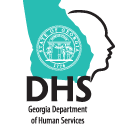Georgia is hiring 175 case workers for its troubled DFCS program, with the new employees all expected to be on board by July 1.
They can’t arrive soon enough for some areas of the state.
The state’s Department of Human Services, responding to a query from GHN, acknowledged this week that some metro Atlanta caseworkers for the Division of Family and Children Services currently have unusually high caseloads.
“As of last week, there were a small number of caseworkers in Cherokee, Gwinnett and Cobb [counties] with caseloads of approximately 100,’’ Ravae Graham, a DHS spokeswoman, said in an email to GHN.
These caseloads were mostly combinations of investigations, family support or family preservation cases, she said.
In the last six months, the number of reports of abuse or neglect made to DFCS has risen from an average of 6,000 reports per month (March 2013 through August 2013) to 7,300 per month (September 2013 through March 2014), Graham said.
“As a result, more children have come into the state’s care, and caseloads have increased,” she said.
The state’s goal is to get the number of cases per worker down to below 15, Rick Dunn of the Governor’s Office of Planning and Budget told a policy forum earlier this month, sponsored by Voices for Georgia’s Children and Georgia Children’s Advocacy Network.
The Child Welfare League of America recommends caseloads of 12 to 17 families per worker in child protection cases. Caseloads of 100 for child welfare workers “are extraordinarily high and entirely untenable,” said CWLA spokeswoman Linda Spears.
The statistics on case workers and DFCS come amid renewed focus on fixing the child welfare system in Georgia.
Last year, the deaths of 10-year-old Emani Moss and 12-year-old Eric Forbes mobilized child advocates and lawmakers into proposing changes in the system.
Early this year, the General Assembly considered a proposal to privatize most of the state’s child welfare system, including adoption and foster care, but the legislation ultimately failed to pass.
Gov. Nathan Deal, though, created a council to study Georgia’s child welfare system and come up with ways to protect children better. And a pilot program for privatization will occur in two regions of the state.
Shrinking work force
Graham of DHS said cases with an identified safety threat are designated as investigations and are managed solely by DFCS.
In some cases where no safety threat is identified, DFCS works with outside organizations to provide resources to families who could benefit from services, she said. “This outside collaboration is normal practice.”
“It is also important to note that not all open cases may be active; however, these may be cases that require final documentation prior to closure,’’ Graham’s statement added. “DFCS leadership is also assisting front-line caseworkers with strategies that will result improve the efficiency of casework in a manner that focuses on the safety of children.”
The new hires — part of a three-year plan to hire 525 DFCS workers — are expected to have “a direct, positive impact on staff caseloads as a result,” she said.
Still, advocates say that DFCS has scores of job vacancies.
Graham said in response to a GHN query that in 2009 there were an average of 2,228 front-line social service workers. In March 2014, DFCS had 1,633 of these caseworkers.
Karl Lehman, CEO of Childkind, a nonprofit helping families caring for children with special health care and developmental needs, told GHN recently that the General Assembly must fully fund Child Protective Services.
Through budget cuts and the loss of other funds, “the ability of the state to [operate] Child Protective Services has been decimated,” Lehman said.
“The work of the investigator is one of the most important and difficult roles in DFCS,” he added. “You really need to put the money into it to keep children safe.’’ Not funding investigations, he said, “will cost more in the long run.”
Lehman said he hopes for positive changes from Deal’s Child Welfare Council.
The council is chaired by Stephanie Blank, who told the policy forum this month that “there is much work to be done” in the child welfare system. “We want to think creatively.”
Blank encouraged the child advocacy community to give input into the process.
The council’s goal, she said, is to offer a list of recommendations for the 2015 General Assembly session.
Erin Hames, Gov. Deal’s deputy chief of staff for policy, told the forum: “The governor is very focused to do everything [we] can to make Georgia the best child welfare state in the country.’’

